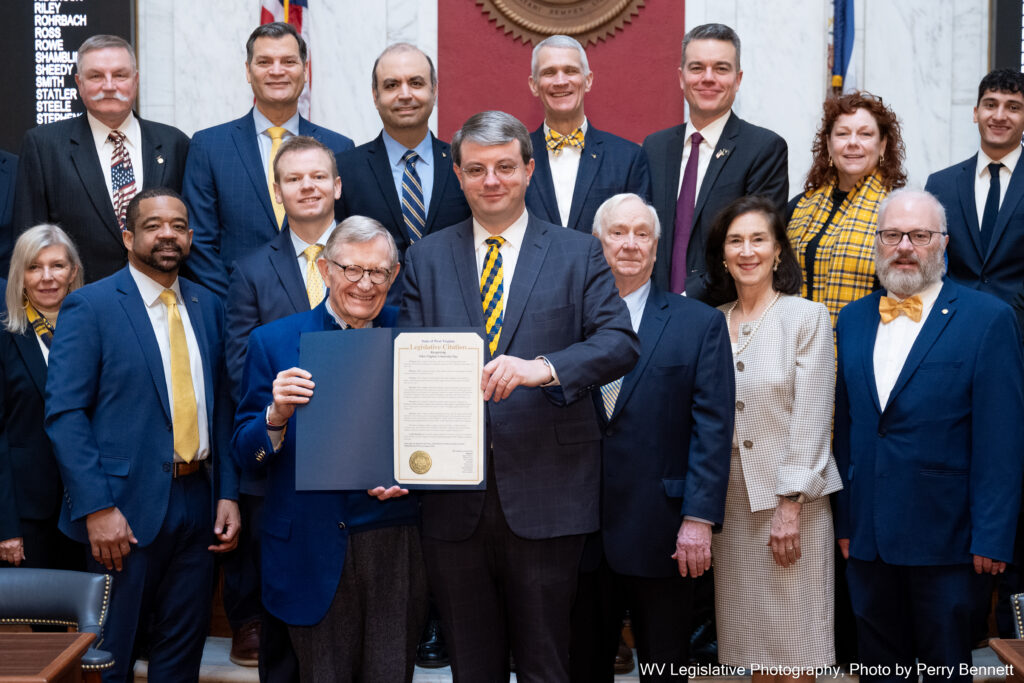Tuesday was WVU Day at the Capitol, and the growing public, private and academic partnership in workforce development was the leading theme on display.
Adorned in blue and gold, many of the capitol rotunda displays focused on technology advancement, a key component to the state’s desire to develop a workforce ready to meet the demands of a high tech future.
However, WVU President Gordon Gee said, contrary to popular opinion, a WVU liberal arts education has not taken a back seat to workforce development.
“We’re a very balanced institution,” Gee said. “We have 300 plus programs across the spectrum, but we think that it’s important, whether you’re a liberal arts graduate, or whether you’re an engineering or STEM graduate, that you stay in West Virginia and take the jobs we have. We have over 30,000 jobs available for young people. And so that is really our focus. We can’t grow West Virginia without growing our workforce.”
Gee did agree there are two tiers to academic workforce development. The high tech tier, a high demand degree in cybersecurity for example, and the vocational trades tier, the skilled jobs on the ground that combine tech and tools at places like NUCOR Steel and Form Energy.
“Some jobs are really available for people who really just want to go out and make certain that they have a good opportunity,” Gee said. “Unlike other jobs that require a lot of education. And the thing that is very important about West Virginia is the fact that we’ve crossed the digital divide with LG coming here. We have both hands on jobs with our steel mills coming or our energy programs, but now we have cybersecurity jobs and jobs that are unusual for an energy state.“
Gee said people can expect to see a lot more public-private-educational partnerships in West Virginia’s future.
“I think it will grow because of the fact that no one has enough money to do everything,” Gee said. “What we have to do is we all have to draft off from each other. Besides, I think it’s important, with the private sector, they tell us what they need, and the public universities need to produce. And it’s that partnership that I think will prevail.”






















